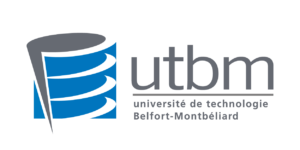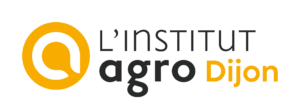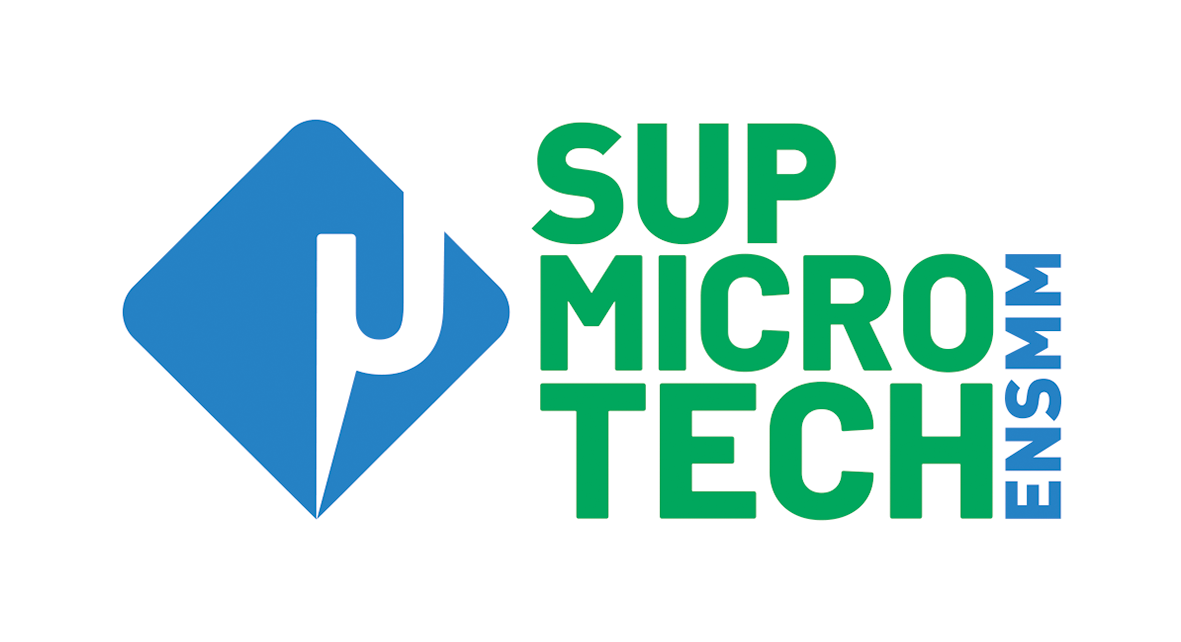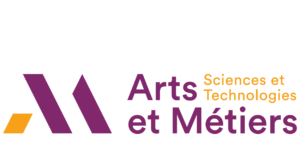EIPHI Graduate School
Join EIPHI Graduate School’s program in Advanced materials, waves and smart systems
> Engineering and innovation through physical sciences, high‑tech and inter‑disciplinary research.
EIPHI Graduate School offers a research training degree at the master’s and doctorate level. The program is supported by laboratories and the University of Bourgogne‑Franche‑Comté scientific department of “Advanced materials, waves and smart systems.”
EIPHI Graduate School offers 16 master’s programs encompassing five research areas:
- Physics, Mathematics and Applications
- Smart Systems and Structures
- Energy
- Material Science
- IT
EIPHI Graduate School works hand in hand with seven research laboratories and two doctoral schools.
Who is this degree for?
Students who have obtained a licence/bachelor’s equivalent to 180 ECTS (European Credits Transfer Scale) (high school diploma + 3 or 4 years of university studies).
Formal education or continuing education.
What?
EIPHI offers 16 Science Research Master’s degree programs to students and promotes:
– Open-mindedness for scientific and/or technological innovation through the access to the latest scientific knowledge and to the international scene thanks to our partners;
– Interdisciplinarity to face societal issues and to lead cross-disciplinary and future-oriented projects in the socio-economic world;
– A solid theoretical and experimental training, thanks to immersion in world-class university research groups, access to several technological platforms and links with socio-economic partners.
Why?
To enter the world of work while pursuing a doctorate.
When?
Training of 2 years over 4 semesters (academic year from September to August).
Where?
University of Bourgogne (city of Dijon), University of Franche‑Comté (cities of Besançon, Belfort and Montéliard), UTBM (cities of Montbéliard and Belfort), ENSMM (city of Besançon).
How?
Through 120 ECTS (60 ECTS during M1 + 60 ECTS during M2).
Year 1:
60 ECTS — 36 ECTS: basic sciences + 12 ECTS: interdisciplinary courses + 6 ECTS: transversal skills + 6 ECTS: research project
Year 2:
60 ECTS — 30 ECTS: research internship and research project + 24 ECTS: specialization + 6 ECTS: transversal skills
Physics, Mathematics and Applications
- 6 masters:
- PPN – Physics, Photonics & Nanotechnology (mutualisé avec un master Erasmus Mundus)
- E-PhoT – Photonics, micronanotechnology, time-frequency metrology and complex systems
- CompuPhys – Computational Physics
- Math4Phys – Mathematics for Physics
- Advanced Mathematics
- QuanTEEM – Quantum technologies and engineering (Erasmus Mundus)
- Fields: knowledge and lab expertise in fundamental & applied mathematics, physics (solid-state, molecular, nonlinear, ultrafast, quantum), astrophysics, advanced computation, instrumentation, optics-photonics and light-matter interactions, wave physics, spectroscopy, optoelectronics, time & frequency metrology, nanobiosciences, micro/nano- and quantum technologies
- Career opportunities: Academic or industrial R&D career in either abovementioned discipline or in telecoms & digital infrastructure, automotive & aeronautics, space & defence industry, safety & security, laser manufacturing, biomedical instrumentation & biotechnologies, agro-food, sensing & metrology, industrial consulting, numerical analysis and computation for industrial applications, big data analysis.
Smart systems and structures
- 5 masters:
- GREEM – Control for green mechatronics
- SIS – Smart Integrated Systems
- Smart Mechanics
- Computer Vision : Computer Vision for Robotics (VIBOT) or
- Medical Imaging for Applications (MaIA – Erasmus Mundus)
- Fields: applied mechanics and mechatronics, eco-design, electronics, micro-nanorobotics and control science, signal processing, machine & deep learning, instrumentation, imaging and vision for applications in smart systems and structures (vibro-acoustic, structural control & monitoring, (bio)composites, energy harvesting, micro-nanotechnologies and microsystems, embedded electronics…)
- Career opportunities: Academic or industrial R&D career in either abovementioned discipline or in Aeronautics and space industry, ground transportations & automotive, energy & sustainable development, luxury & watchmaking, biomedical instrumentation & biotechnologies, medical imaging, agro-food, sensing & metrology manufacturing, industry 4.0, (micro-)system design & development
Energy
- 2 masters:
- Electrical energy,
- Thermal energy
- Fields: Optimization and Integration of thermal, electrical and hydrogen-based energy (fuel cell) systems, energy storage, conversion & management, smart grids, power electronics, electrical, electrochemical & thermal engineering, heat transfer & thermal flow, thermodynamics, fluid dynamics & thermofluidic metrology, renewable energy
- Career opportunities: Academic or industrial R&D career in either abovementioned discipline or in Renewable Energies & Energy Mix in stationary and mobile applications, Hydrogen Energy, Transportation & Electrical Vehicles, Energy devices (converters, actuators, batteries, thermal machines, combustion…), Eco & sustainable energy supplies & systems, Energy-efficient construction & building.
Material sciences
- 2 masters:
- CDM – Control and Durability of Materials
- T2MC – Transition Metals in Molecular Chemistry
- Fields: Molecular and polymer chemistry, organic, organometallic and coordination chemistry, physico-chemistry of materials, surfaces and interfaces, spectroscopy, characterization & molecular imaging techniques, reactivity of solids, catalysis, nano-materials, biomolecules, corrosion, interfacial electrochemistry, inorganic chemistry, with a focus on complex materials (polymers, hybrid materials, ceramics, transition metals…).
- Career opportunities:Academic or industrial R&D career in either abovementioned discipline or in Transportation (automotive, aeronautics), energy (production, transportation), sustainable development, safety & security, environment, glass industry, cement & concrete industry, healthcare, pharmaceutical and therapeutic industry, petrochemical and agrochemical industry, materials-related engineering and manufacturing (production, processing, method, security, quality control), industry 4.0.
IT
- 1 master: IoT – Internet of Things
- Fields: Computer Science: Algorithmic and computing aspects of network applications (web, distributed and cloud computing, cybersecurity, data mining & big data, deep learning and artificial intelligence, mobile applications, the Internet of Things, positioning and embedded systems and sensors, routing, connected objects)
- Career opportunities : Academic or industrial R&D career in either abovementioned discipline or as Network engineer, System Engineer, Software and Web designer, Assurance quality and test engineer, Network administrator, Database administrator, Technical consultant, Quality Manager / computer methods, Auditor in IT development, Head of industrial IT project…
Across seven research laboratories, the school counts 604 researchers and teacher-researchers.
- FEMTO Sciences et Technologies | FEMTO-ST : Micro-Nanosystems, Time-Frequency, Advanced control, Mechatronics, Computer sciences, Photonics, Energy…
- Laboratoire Interdisciplinaire Carnot de Bourgogne | ICB: Micro-Nanosystems, Time-Frequency, Advanced control, Mechatronics, Computer sciences, Photonics, Energy, Photonics/Nano-optics, Quantum control & interactions, Materials, Nanosciences …
- Institut de Chimie moléculaire | ICMUB: coordination chemistry, organometallic synthesis, control of pollutants, diversification of energy and material sources, sensors, biosourced materials, applications of nanotechnologies in biology and medicine
- Institut de mathématiques de Bourgogne | IMB : Geometry & Dynamical systems, Physics-Mathematics, Statistics, Probabilities
- ImVIA Imaging, Vision, Robotics, Sensors, IA
- Laboratoire de Mathématiques de Besançon | LmB : Algebra & number theory, Functional & numerical analysis, partial differential equations, Probability and statistics
- Institut UTINAM Physics and chemistry of materials and surfaces, Spectroscopy and astrophysics, planetology, atmospheres, Nanoparticles and membrane
More informations: gradschool.eiphi.ubfc.fr
More info: gradschool.eiphi.ubfc.fr
Individualized educational support:
- A mentor accompanies and advises you throughout your studies
Implementation on high‑tech platforms:
- Internships and research projects with scientific companies and laboratories
- Access to high-tech instrumentation
An international research environment and many opportunities for research abroad:
- Grants for international internships, joint-master’s, joint-doctorate, Erasmus+, seminars, international workshops and more






